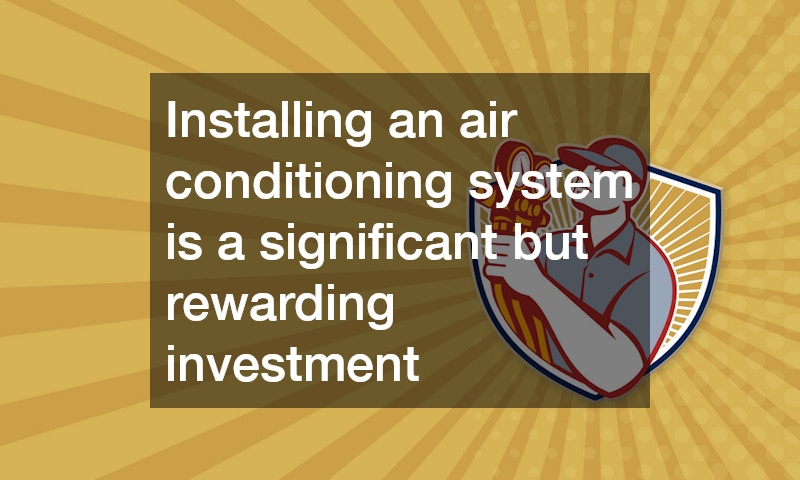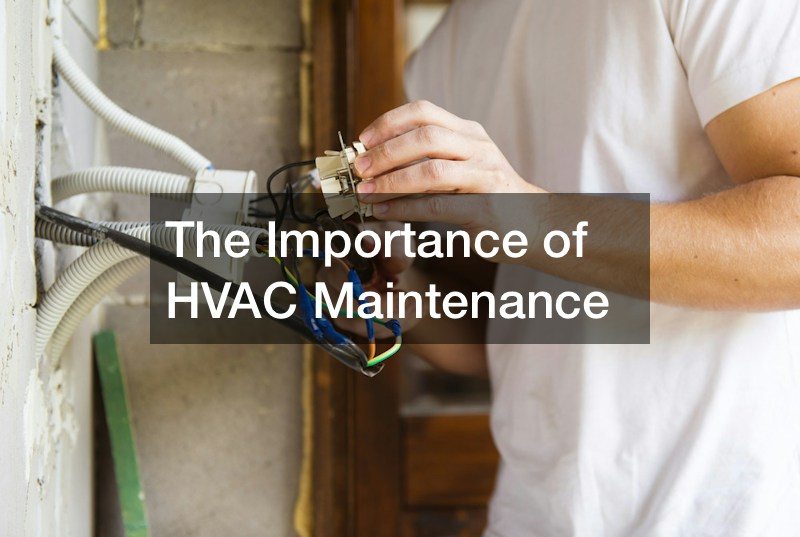Installing an air conditioning system in your home or office can be a game-changer, particularly during the sweltering summer months. A well-installed system not only provides cooling comfort but also improves air quality, ensuring a healthier indoor environment. However, air conditioning installation is not a task to be taken lightly. It requires careful planning and consideration to ensure efficiency, cost-effectiveness, and longevity.
In this blog post, we will explore three essential tips that can guide you through a successful air conditioning installation process.
1. Choose the Right Size and Type
The first and perhaps most crucial step in air conditioning installation is selecting the right size and type of unit for your space. Many homeowners make the mistake of buying a unit that is either too small or too large for their needs. An improperly sized unit will either work inefficiently or consume more power than needed, leading to increased energy bills. It’s essential to conduct a thorough assessment of the space that needs cooling, taking into consideration factors like room size, the number of windows, and insulation levels. Consulting a professional can help you determine the right capacity unit needed for optimal performance.
2. Optimal Location for Installation
Determining the optimal location for your air conditioning unit can significantly impact its efficiency and effectiveness. Ideally, the outdoor unit should be placed in a shaded area, away from direct sunlight and obstructions that can affect airflow. The indoor unit should be installed in a spot where air can circulate throughout the room without being obstructed by furniture or other fixtures. Additionally, consider installing the thermostat away from direct heat sources like windows and appliances, as it could lead to inaccurate temperature readings. By ensuring the right location, you maximize the system’s cooling capabilities and energy efficiency.
3. Invest in Professional Installation
While DIY projects often appeal to those looking to save money, air conditioning installation is best left to the professionals. Trained technicians have the expertise and experience to install the system correctly, ensuring all components are functioning as they should. They also adhere to safety standards and building codes, reducing the risk of future complications. Investing in professional installation might seem costly upfront, but it can save you money in the long run by preventing costly repairs and improving energy efficiency. Remember, a well-installed unit is an investment in comfort and peace of mind.
4. Understand Maintenance Needs
A newly installed air conditioning system requires regular maintenance to operate efficiently and have a long lifespan. Maintenance tasks such as cleaning or replacing the air filters, checking refrigerant levels, and ensuring the system is free of obstructions are essential. Proper maintenance not only extends the life of the system but also keeps energy use manageable. According to experts, regular maintenance can improve system efficiency by up to 15%. Committing to a regular maintenance schedule will ensure that your air conditioning system runs smoothly and efficiently throughout its lifecycle.
5. Consider Energy Efficiency Ratings
Energy efficiency should be a key consideration before purchasing an air conditioning unit. Modern units come with energy efficiency ratings, known as SEER (Seasonal Energy Efficiency Ratio) ratings. A higher SEER rating indicates a more efficient system, which can result in significant energy savings over time. It’s wise to invest in a unit with a good energy efficiency rating, even if it means a higher initial cost. The long-term savings on energy bills can outweigh the upfront investment, making it an economically sound decision. Selecting an energy-efficient unit is both environmentally and financially beneficial.
Installing an air conditioning system is a significant but rewarding investment in your comfort and quality of life. By selecting the right size and type, strategically positioning the units, investing in professional installation, understanding maintenance needs, and considering energy efficiency ratings, you can ensure that your air conditioning system provides optimal performance. These essential tips are designed to help you navigate the installation process, resulting in a system that not only cools effectively but also operates efficiently. Additionally, it’s important to factor in long-term costs, such as energy consumption and maintenance, as these can impact the overall value of your investment. Regular upkeep, such as cleaning filters and checking for refrigerant leaks, will help extend the lifespan of your system and maintain its efficiency. Prioritize thoughtful planning and informed decisions for a smooth and successful air conditioning installation experience that brings lasting comfort to your home or business.
.




